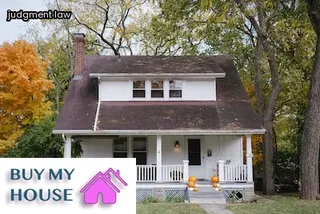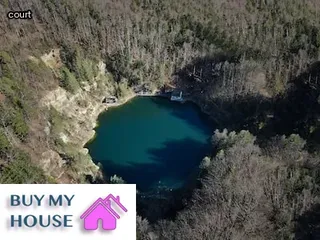Understanding the preforeclosure process in Florida is essential for homeowners who may be facing foreclosure. The first step of the preforeclosure process typically involves a notice of default being sent to the homeowner, which is a formal warning that they have failed to make their mortgage payments on time.
Once this notice has been received, there are several options available to help them avoid foreclosure. The homeowner may be able to negotiate a loan modification or forbearance agreement with their lender, or they may choose to pursue a short sale or deed-in-lieu of foreclosure transaction.
All of these options should be discussed with a qualified real estate attorney before proceeding so that any potential pitfalls or risks can be avoided. Additionally, it's important for homeowners to remember that they still have rights during the preforeclosure period and should not feel pressured into signing any documents without fully understanding what they are agreeing to.
While it's never an easy decision to let your home go into foreclosure, learning more about the preforeclosure process in Florida can help ensure that you are making an informed decision and protecting yourself as best as possible.

When it comes to understanding the foreclosure process in Florida, there are a few key points that homeowners need to be aware of. Foreclosures in the state of Florida are handled through the judicial system, which means that a court will issue a final judgment regarding any foreclosure proceedings.
The process begins when a lender files a lawsuit against the homeowner for defaulting on their loan. Before this happens, however, lenders are required to send out notices informing homeowners of their rights and the potential consequences of not paying their mortgage payments.
Once this has been done, the court will set a hearing date where both parties can present evidence and arguments relating to their case. If the homeowner is unable to pay off their debt or negotiate an agreement with their lender, then they could end up losing their home to foreclosure.
It is important for homeowners to be aware of exactly what is involved in this process so they can make informed decisions about how best to handle their situation.
Foreclosures in Florida can be a daunting experience, especially if you are not familiar with the process. However, understanding the foreclosure process and knowing what options are available to you can help you avoid it.
One of the best strategies to stop a foreclosure in Florida is to apply for assistance from the Hardest Hit Fund. This fund provides financial aid to homeowners who have fallen behind on their mortgage payments due to factors like job loss or medical bills.
Additionally, it is important to contact your lender as soon as possible when you realize that you may be at risk of foreclosure. Your lender may be able to modify your loan terms or offer other forms of relief such as forbearance or loan deferment.
Other strategies for stopping a foreclosure in Florida include refinancing your mortgage, filing for bankruptcy protection, and selling your home on a short sale. No matter which strategy you pursue, it is essential that you work with an experienced real estate attorney who can guide you through the legal processes involved in stopping a foreclosure in Florida.

Navigating Florida's deficiency judgment laws can be difficult for homeowners facing foreclosure. In the state of Florida, a deficiency judgment is typically issued if the proceeds from the sale of a borrower’s home are insufficient to cover their mortgage debt.
If a lender obtains a deficiency judgment, they can then pursue the homeowner for any remaining balance on the loan. It is therefore important to understand these laws before allowing your house to go into foreclosure.
Determining when a deficiency judgment is allowed and understanding what it means for the borrower are key elements of navigating this complex process. Generally, in Florida, lenders may only file for a deficiency judgment if they have obtained permission from either the court or through an agreement with the borrower.
This permission must be given prior to finalizing any foreclosure proceedings and is often contingent upon certain conditions being met by both parties. However, even if permission is granted, there are additional legal steps that must be taken before a deficiency judgment can be issued.
Knowing how these steps work and what rights you have as a homeowner can help ensure your financial security during this difficult time.
Foreclosures are a complex process and it is important to understand the legal implications of allowing your home to enter foreclosure in Florida. To gain an even better understanding of this process, it is beneficial to learn about the reasons for dismissed foreclosures cases in the state.
Some common reasons for dismissed foreclosure cases include incorrect paperwork filings, errors in filing or service of documents, and inaccurate descriptions or inaccuracies surrounding the property itself. Additionally, if a homeowner has made timely payments after receiving a notice of default, this can be reason enough for a court to dismiss foreclosure proceedings.
Homeowners must also make sure that all lenders have received proper notification of the intent to foreclose and that they have been given sufficient time to respond before any legal action is taken against them. Ultimately, understanding why foreclosures are dismissed can help homeowners make informed decisions regarding their financial future and hopefully avoid entering foreclosure in Florida altogether.

If you are facing foreclosure in Florida, it is important to understand that you have options and resources available to help. There are many organizations dedicated to providing free or low-cost assistance and information on how to prevent foreclosure or explore alternatives.
It is important to remember that the sooner you seek assistance, the more options you may have. The Department of Housing and Urban Development (HUD) offers a list of approved housing counseling agencies throughout Florida who can provide advice on default mortgage avoidance, reverse mortgages, credit management, budgeting and other options.
Additionally, the state of Florida has its own Foreclosure Prevention Program with an online foreclosure prevention workbook filled with helpful information about avoiding foreclosure. Lastly, there are private companies who offer loan modification services for those who need additional help managing their debt.
Seeking assistance from any of these sources can be invaluable if you are going through a foreclosure in Florida and will give you the best chance at keeping your home.
Preparing for a foreclosure trial in Florida can be a daunting task, but it's important to understand the process and be prepared if you are at risk of losing your home. A foreclosure is started when a lender legally claims ownership of a property due to delinquent payments.
In Florida, the foreclosing party must file a lawsuit and prove their case in court in order to take possession of the home. If you want to keep your home, you need to be prepared with evidence that refutes the foreclosing party's claim.
This includes having documents such as loan applications, payment records, and proof that you have been making timely payments on time. You may also need to provide proof that the lender did not properly notify you about the foreclosure proceedings or failed to provide adequate notice before filing suit.
It is important to remember that even if your case goes before a judge, you still have certain rights and should consult with an attorney before proceeding any further.

Unclean hands is a foreclosure defense strategy that can be used when the plaintiff has acted in bad faith or with malicious intent. In Florida, this strategy is based on the principle of equity, which states that no one should benefit from their own wrongdoings.
The standard for unclean hands is high in Florida and requires a showing of some form of fraud, misrepresentation, or bad faith by the plaintiff. If proven, unclean hands can be used as a successful foreclosure defense by proving that the plaintiff has acted contrary to their obligations under the loan agreement.
The burden of proof is on the defendant to demonstrate that there was some wrongdoing by the plaintiff and that this wrongdoing caused them harm. While it can be difficult to prove unclean hands in foreclosure proceedings, doing so may provide an avenue for homeowners to avoid losing their home through foreclosure.
In Florida, proving Unclean Hands in a foreclosure case can be very important. It is the responsibility of the homeowner to provide proof that they have not acted inappropriately or illegally when it comes to their mortgage payments.
This can involve showing that the lender was aware of any financial hardship and had not been completely forthcoming with the homeowner about loan modifications or repayment plans. If the homeowner can demonstrate that the lender did not do its due diligence in providing them with alternatives to foreclosure, then this could be seen as a form of unclean hands and might help them in their case.
Additionally, if there are discrepancies between what was promised by the lender during loan negotiations and what was actually provided, this too could be used to prove unclean hands. It is also possible for homeowners to prove unclean hands by demonstrating that their lender was involved in fraudulent activity or failed to follow proper procedures when foreclosing on their home.
By understanding how unclean hands can be proved in a foreclosure case, homeowners in Florida can potentially protect themselves from having their house go into foreclosure.

When a homeowner faces foreclosure in Florida, it is important to understand the conditions precedent necessary to mount a successful defense against the seizure of their home. The most common type of defense is showing that the lender failed to comply with the terms and conditions of their loan agreement.
This can include failing to provide notices, failing to process payments correctly, or not providing sufficient time for payment prior to initiating foreclosure proceedings. Homeowners should also be aware of any other requirements placed upon them by their mortgage contract such as providing proof of residence and insurance coverage.
Additionally, homeowners may be able to prove that there was an error or mistake made on behalf of the lender or servicer when calculating payments or fees. It is important that homeowners are aware of all legal obligations they have under their mortgage agreement before trying to defend themselves against foreclosure in Florida.
When a homeowner falls behind on payments, the lender sends them a Notice of Default. This is an official letter that informs the homeowner that they are in violation of their loan agreement and need to take action quickly.
In Florida, this notice must include the amount owed, the type of foreclosure process being used, and any legal fees associated with it. The Notice of Default also offers options for the borrower to cure their default by bringing their mortgage current or negotiating with their lender.
If these options are not taken within 30 days from receipt of the Notice, then the foreclosure process will begin and eventually lead to a public auction or sale of the property to pay off the debt. It is important for homeowners facing foreclosure in Florida to understand what this Notice means so that they can make informed decisions about how best to move forward.

The Notice of Default clause is one of the most important parts of a mortgage to understand when it comes to the foreclosure process in Florida. A Notice of Default is a formal letter sent by a lender to a borrower that notifies them that they are delinquent on their payments and may face foreclosure proceedings if they don't take action.
This notice gives borrowers an opportunity to catch up on their payments, initiate a loan modification, or work out some other arrangement with their lender before their home goes into foreclosure. It's important for homeowners in Florida to understand how the Notice of Default works in order to be aware of their rights and have an idea of what can happen if they fail to make payments.
When looking at a Notice of Default, it's important to pay attention to the details such as when it was issued, what actions will be taken if you don't make your payments, and any deadlines stated in the document. In addition, homeowners should know what options they have available such as loan modifications and short sales so they can make an informed decision about whether or not foreclosure is the right option for them.
Knowing these key points can help Florida homeowners understand the foreclosure process better and potentially avoid having their home go into foreclosure.
Cancelling a foreclosure sale in Florida is possible if the borrower and lender can come to an agreement on a repayment schedule that the borrower can afford. In some cases, lenders may agree to postpone or cancel the foreclosure sale altogether if the borrower has a valid reason for missing payments such as medical bills, job loss, or other financial hardship.
Borrowers should also be aware that they may have to pay certain fees associated with cancelling the foreclosure sale. It's important for borrowers to understand their rights when facing a foreclosure and take action quickly to try and prevent it from taking place by working with their lender.
Additionally, borrowers should reach out to HUD-approved housing counseling agencies for assistance in negotiating with lenders and understanding how foreclosure works in Florida so they can make informed decisions about their property.

Understanding the foreclosure process in Florida can be complex and intimidating. However, it's essential to know what rights you have and what could happen if your home goes into foreclosure.
One important aspect to consider is the impact of voids on foreclosure sales and how they can affect your ability to maintain homeownership. Voiding a foreclosure sale means that the original homeowner retains ownership of their home and has the opportunity to keep their property as long as they continue to make payments.
This can create an advantageous situation for a homeowner who is struggling with mortgage payments but does not wish to lose their house. It's important to understand that voids are only available in certain cases and may not be an option for everyone affected by foreclosure proceedings in Florida.
It's wise to research any potential legal options you may have before letting your house go into foreclosure.
When deciding whether to let your house go into foreclosure in Florida, it is important to weigh the pros and cons. On one hand, if you choose to let your home enter foreclosure, you may be able to avoid further financial obligations as any remaining debt is usually wiped out by the lender.
On the other hand, letting your home fall into foreclosure can have a significantly negative impact on your credit score. Additionally, you may be subject to certain fees and legal costs associated with the foreclosure process.
Furthermore, you may struggle to secure future mortgages or loans due to having a foreclosed property on your record. Ultimately, before making the decision to let your house go into foreclosure in Florida, it is essential that you understand the potential consequences and how they could affect both your short-term and long-term financial situation.
Many homeowners in Florida let their house go into foreclosure due to financial issues, such as job loss, medical expenses, or other debt obligations. The inability to pay the mortgage can be overwhelming and stressful for many, leading them to choose foreclosure as a way out.
Foreclosure is attractive because it gives the homeowner the chance to stop making payments on the mortgage and still keep their home until the lender has completed the process. This can provide some temporary relief from monthly payments that are difficult or impossible to make.
Unfortunately, this decision comes with its own set of risks and consequences that must be carefully considered before proceeding. Non-payment of mortgage may result in damaged credit score, legal fees associated with foreclosure proceedings, additional costs for moving and storage expenses, higher interest rates on future loans, and potential tax liability associated with forgiven debt.
It's important for homeowners in Florida to understand all of these possible outcomes before deciding if foreclosure is right for them.

Foreclosures in Florida were placed on hold due to the coronavirus pandemic, but this is beginning to change. The state Supreme Court recently lifted the suspension of foreclosure proceedings and has allowed lenders to resume filing foreclosure lawsuits.
In order to protect homeowners from potential foreclosure, the Florida Housing Finance Corporation has put in place measures such as forbearance periods and moratoriums on foreclosures for certain homeowners. However, it is important for homeowners to understand that even with these protections, they may still face foreclosure if their situation does not improve.
It is important to know the foreclosure process in Florida and what options are available before letting your house go into foreclosure.
When a house goes into foreclosure in Florida, the homeowner will receive a Notice of Default or Lis Pendens from their lender. This is an official letter that informs the homeowner they have defaulted on their mortgage payments and are at risk of losing their home.
The homeowner then has up to 45 days to make the past due payments and reinstate their loan or the lender will move forward with the foreclosure process. If the homeowner fails to make these payments, the lender can then file a lawsuit and obtain a Final Judgment of Foreclosure.
After this judgment, the property is put up for auction by the county sheriff's office. At this point, any third party can bid on the home and become its new owner if they outbid other prospective buyers.
Afterwards, ownership of the property is transferred to its new owner after all liens are paid off and foreclosure costs are settled through proceeds from the sale. Homeowners should be aware that even after their house goes into foreclosure, they may still owe money on any remaining balance owed on their mortgage loan.
The average foreclosure process in Florida can take anywhere from 2 to 3 months, depending on the particular case. Generally, foreclosure proceedings are initiated when a homeowner is at least 90 days delinquent on their mortgage payment.
Once a borrower has been notified of the lender's intention to foreclose on their home, they have 20 days to respond and contest the foreclosure notice or come to an arrangement with the lender. During this time, homeowners should work closely with their lender or a housing counselor to find alternative solutions that could prevent the foreclosure.
If no resolution is reached within 20 days, then the lender may file a complaint in court and begin the formal foreclosure process. At this point, it can take anywhere from 45-90 days for a judgment to be issued by the court.
Afterward, it typically takes another 30 days for a sale date to be set by the court before a home is legally foreclosed upon.